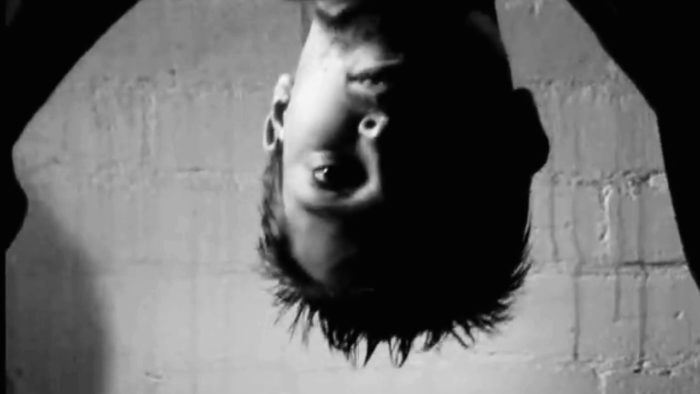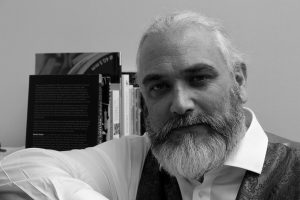
Starting Small – The Early Short Films of Great Directors
Many years ago at the Cannes Film Festival I was discussing the story of my next film with a producer. “So, feature?”, he asked. “No, short”, I responded. “Why? Shorts are a waste of time, you can’t make money with them”. “But, that’s the length of the story” was all I could counter with, and that was the moment I realised the dichotomy of the film industry, where the creative meets the financial.
There are, of course, many reasons to make shorts. Sometimes, like above, it is simply that it is the format that suits the story you wish to tell. It is possible, of course, to make shorts commercially viable, particularly through the ‘portmanteau’ films, where a collection of short stories with linked themes are told, forming between them a feature film. The portmanteau film was particularly popular with horror films from the Forties (‘Dead of Night’) through the Seventies (‘Trilogy of Terror’) and beyond.
However the short film has also acted as a ‘calling card’ for filmmakers, giving an indication of their abilities before the finances could be raised for bigger projects. By making a variety of short films it also allowed directors to attempt to avoid ‘typecasting’ in a particular genre.
Below I have found early short films from several esteemed directors. Often it is not their first film, but the one that first drew attention to them and helped to launch their careers.
Christopher Nolan – ‘Doodlebug’ (1997)
Nolan’s third and last short before he began his feature career with ‘Following’ the next year, ‘Doodlebug’ already shows the inverted ‘worlds within worlds’ that have become Nolan’s stock in trade.
Ridley Scott – ‘Boy and Bicycle’ (1965)
Staring his brother, and fellow director, Tony, ‘Boy & Bicycle’ was made for Scott’s entrance into film school and was his main calling card which got him his first jobs in television from where he took the long road through commercials and eventually into film. It is definitely in the ‘write what you know’ school of filmmaking, with Tony playing truant from school and cycling around their native North East.
Andrea Arnold – ‘Wasp’ (2003)
Arnold’s third short (followed the equally mono-syllabic ‘Milk’ and ‘Dog’) stars Natalie Press and Danny Dyer and went on to win the Best Short Film Oscar in 2005, launching Arnold’s feature film career. Like Scott she sets it in her native Dartford and concerns a single mothers attempt to re-ignite an old relationship. For a British person it is also an opportunity to use ‘Danny Dyer’ and ‘Oscar’ in the same sentence.
Taika Waititi – ‘Two Cars, One Night’ (2004)
The same year that Arnold won the Oscar Waititi was nominated for his second short film. Like Arnold, Waititi was an actor looking at moving into the directing seat. He follows a useful short film dictate of keeping the setting simple (the title says it all) while allowing the characters and story to cover a lot of ground.
Tim Burton – ‘Vincent’ (1982)
Burton had made many animated shorts throughout the seventies, but it was ‘Vincent’ that got him his first TV work and ultimately lead to feature work. Along with Terry Gilliam he managed to make a leap from animated shorts to live-action features, and to bring the energy and imagination of the former into the latter.
Sion Sono – ‘Love Songs’ (1984)
Sono started as an anarchic video artist and his first short has little narrative, and no dialogue to clue us as to its meaning. An insistent alarm ringing throughout can make viewing rather a trying experience (perhaps why the YouTube link below only has half of the film). He continued to make shorts and features that broke rules until given a mainstream hit with ‘Suicide Club’, but his anarchic spirit continues to show in most of his films.
Ousmane Sembene – ‘Borom sarret’ (1963)
Sembene’s short is considered by many to be the first film made by a black African director in Africa. Showing poverty and the class divide in Senegal by following one man and his cart, Sembene overcomes technical limitations to make use of interesting camerawork and a genuinely unique for the time viewpoint.
Naomi Kawase – ‘See Heaven’ (1995)
Kawase’s early documentary films focussed on her sometimes difficult relationship with her great aunt who raised her. They feel incredibly intrusive and personal to the extent of sometimes being uncomfortable. The long lingering shots of nature and simple items, all on 16mm, are something Kawase took on to her narrative features. ‘See Heaven’ is the shortest of these films and, perhaps, the most obscure in it’s meaning.
Park Chan-wook – ‘Judgement’ (1999)
Unusually Park’s first short came after his first two features, which had not been commercial successes. After a disaster in which compensation is offered for the relatives of victims, two families claim the body of a young girl. Park followed the film with ‘JSA’, his first hot feature.
Jean-Luc Godard – ‘A Flirtatious Woman’ (1955)
Godard’s first short was considered lost until it was uploaded onto YouTube in 2017, despite apparently having surfaced at film festivals a couple of times over the years. A young woman tries to attract a man by copying the actions of a prostitute she is watching. Godard himself was experimenting in copying the techniques of other filmmakers at this early point in his career.
About Rory O’Donnell

Rory O’Donnell worked in the UK entertainment industry for 25 years, initially as an actor, then a casting director, before spending ten years as course director for Raindance London, the UK’s top provider of short training courses for filmmakers. He is an award-winning filmmaker, with short films he has directed screening in festivals in Europe and North America. His students have included everyone from film professionals looking to broaden their skillsets to inexperienced novices with a passing interest in the subject. Building on this experience, he has developed classes accommodating to all backgrounds and abilities.
Ready to Launch Your Filmmaking Career?
Join us for our Making the Short Film masterclass in Tokyo
